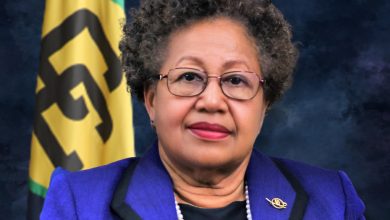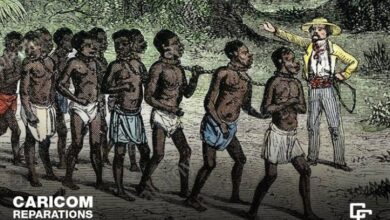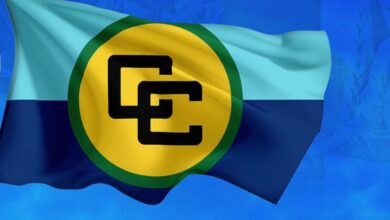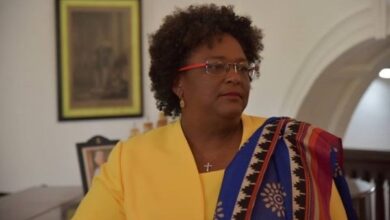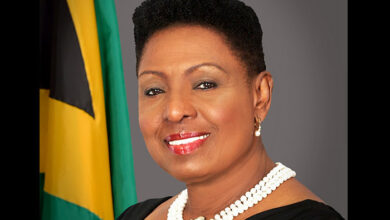The CARICOM Regional Reparations Baton will arrive in Saint Lucia next week, for a formal transfer of the travelling beacon of the regional reparations movement.
Sponsored by the CARICOM Reparations Commission (CRC), the wooden baton is being taken across the Caribbean Community to the nine National Reparations Committees (NRCs) established to help national governments pursue CARICOM’s quest for reparations from Britain and other European States that benefitted from slavery and native genocide.
According to St. Lucia News Online, the baton has been taken from Barbados, to Guyana and Suriname, and is being dispatched to Saint Lucia for a symbolic baton relay, involving young athletes.
The baton relay will take place on Wednesday, August 17, and coincides with a series of events that will mark the 129th birthday of Marcus Mosiah Garvey, including a Reparations Lecture Series jointly sponsored by the Saint Lucia NRC and the UWI Open Campus, Saint Lucia.
These events will also coincide with the local adoption of the UN Decade for People of African Descent, all of which will be enveloped in a colloquy at the UWI Open Campus on Wednesday evening.
VIA Stlucianewsonline
The Saint Lucia National Reparations Committee (NRC) was established in November 2013, following the decision earlier that year by CARICOM member-states to establish a regional commission to pursue Reparations for Slavery from Britain and Europe.
Chaired by journalist Earl Bousquet, the NRC comprised nine members, most representing national entities, including the National Youth Council (NYC), the Folk Research Centre (FRC), the Archaeological and Historical Society (A&H), the Iyanola Council for Advancement of Rastafari (ICAR) and the Office of the Prime Minister.
The NRC is one of 12 similar national entities established by the CARICOM governments and they belong to the regional commission. The commission is also guided by a Prime Ministerial Subcommittee on Reparations. The CARICOM Reparations Commission (CRC) was established following a mandate from the CARICOM Conference of Heads of Government at their 34th Regular Meeting held in Trinidad and Tobago in July 2013, to establish the national committees and a regional commission, to pursue reparations from the former European colonial powers for Native Genocide, the Trans-Atlantic Slave Trade and Slavery.
Twelve CARICOM Member States have established national reparations committees to date, namely: Antigua and Barbuda, The Bahamas, Barbados, Belize, Dominica, Guyana, Jamaica, St. Kitts and Nevis, Saint Lucia, St. Vincent and the Grenadines, Suriname and Trinidad and Tobago.
As part of its activities the CRC is hosting a series of international Reparations Relays and Rallies in collaboration with the CARICOM Members States committed to being part of the reparations movement.
These events are being held on days of historical significance in relation to slavery, the slave trade or native genocide in each Member State, during which a baton and torch are passed from the current Member State to the next one that will host the rally.
The first relay was hosted by Barbados in April, while Guyana hosted it’s Rally and Relay in May. Suriname hosted their event on August 9, the Day of the Indigenous People — and Saint Lucia’s event will be on August 17, the 129th birthday of Pan Africanist and National Hero of Jamaica, Marcus Mosiah Garvey.
The activities in Saint Lucia will be held at the Open Campus, Morne Fortune, Castries. The establishment of the CRC has inspired the birth of similar reparations commissions and committees in the USA, Europe, Britain and Canada in recent years.
Aspects of the CRC’s 10-point Action Plan for Reparatory Justice have been emulated in the policy platforms of the Black Lives Matter and other civil rights movements in the USA and Canada.


